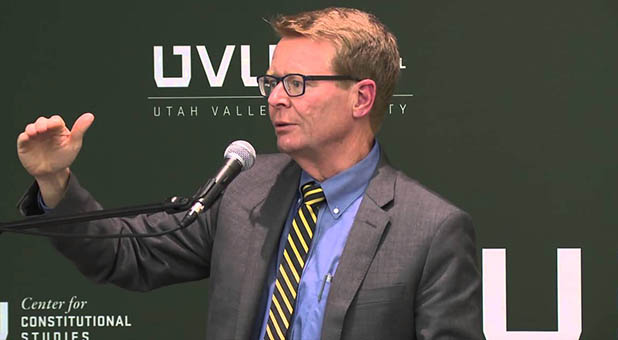FRC Speaker Will Offer 4 Objections to Religious Liberty
Here’s a cold, hard fact: American religious liberty is based on premises no longer universally shared in an increasingly secular society.
Religious liberty has always been controversial, even in America, with its history of religious dissent and with the Constitution’s affirmative protection of the right to the “free exercise” of one’s faith. As a constitutional arrangement, it only makes sense on the premises that God exists, that God makes claims on the loyalty and conduct of human beings and that such claims, rightly perceived and understood, are prior to and of superior obligation to the claims of any human authority.
That is the basis of the First Amendment’s religion clauses, but with so many Americans objecting to those basic principles, religious liberty is on the defensive today, perhaps more than ever in our nation’s history. University of St. Thomas professor Michael Stokes Paulsen, author of more than 90 scholarly articles on constitutional law, will give a lecture on that very subject beginning at noon EST Friday at Family Research Council headquarters.
His lecture, which will be followed by a question and answer session, will focus on the main controversies surrounding religious liberty today. He will share what he thinks are the four chief objections to religious liberty and provide possible responses to each objection. Those objections are:
- “The law should be the same for everyone”—that is, that there should not be such a thing as religious accommodations
- “Religion isn’t a real thing”—and therefore ought not receive affirmative protection in any form
- “People will abuse it”—that is, that protecting religious liberty will lead to false claims and perverse incentives
- “Religious liberty is harmful to others”—and thus should be rejected in principle
Professor Paulsen will suggest that each of these objections, in one way or another, is actually an objection to the idea of religious liberty and to the existence of the Constitution’s protections of it. By unmasking and examining the objections, we go a long way toward understanding and vindicating the true objective of the Constitution’s surprisingly radical embrace of religious liberty.
Click here to watch the lecture on FRC’s Facebook page via Facebook Live. {eoa}




























































